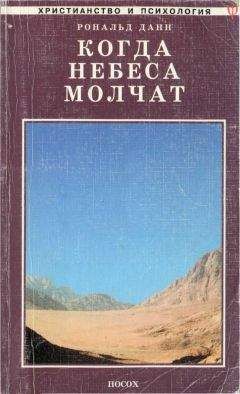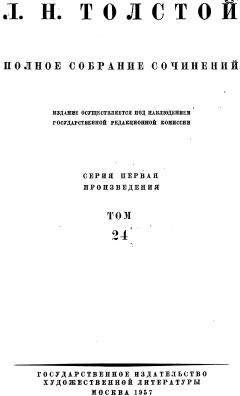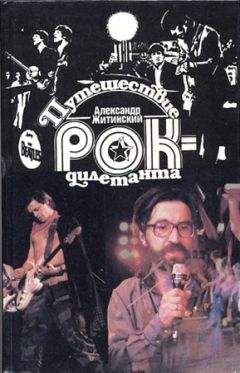В одной из глав Фульгум пишет о своей битве с депрессией и страстью к саморазрушению. Говоря о «мрачном и коварном ангеле смерти», который время от времени вырывается на свободу и мечется в его воспаленном сознании, Фульгум сравнивает свою победу над этим зверем с триумфом матадора, повергающего быка.
Он, по собственным словам, чувствует себя вполне уверенно перед лицом своего неприятеля:
Эта уверенность зовется на арене ver llegar. В переводе это означает «смотреть, как они приближаются». Это способность крепко стоять на земле, чувствовать ее под собою и хладнокровно, как при замедленной съемке, следить за движениями приближающегося быка, твердо зная, что у вас достаточно мастерства, чтобы увернуться от его удара… Эта уверенность приходит с опытом, с боями — вы можете контролировать ситуацию и можете победить, потому что вам это уже удавалось…
Я знаю его. Я чувствую его запах. Я улавливаю его движение еще до того, как он сорвался с места.
Я поджидаю его. Торо! Давай! Подходи же! Я прирастаю ногами к земле и смотрю, как он направляется ко мне. Он делает рывок. И проносится мимо, сквозь плащ моей уверенности. Я слышу оглушительный рев трибун. О–ле! Трибуны заполнены ими, моими предшественниками, у каждого из которых на счету свой бык, — и все они поддерживают и приветствуют меня: О–ле! О–ле! О–ле![95]
Я тоже чувствую себя уверенно в присутствии своего «быка». Но моя уверенность покоится не на мастерстве или опыте. Моя уверенность покоится в Нем, в Том, Кто возлюбил меня и жизнь Свою положил за меня. Его любовь меня хранила В часы невзгод, страданий и скорбей. И верю, что, когда уйду из мира, Не окажусь у запертых дверей.
Я всегда с большой неохотой заканчиваю писать и прямо–таки заставляю себя отправить рукопись в издательство.
В предисловии к своему роману «Дои Кихот» Сервантес пишет: «Тот, кто выпускает книгу, подвергает себя огромной опасности, ибо нет в мире ничего более невозможного, чем сочинить нечто такое, что могло бы удовлетворить вкусам всех без исключения читателей».
А эту книгу я с еще большей неохотой выпускаю из рук, поскольку она получилась очень личной. Я не задумывал это специально, но книги, как непослушные дети, часто своевольничают и делают что им заблагорассудится. Но я вынужден согласиться с Генри Ноувеном, который сказал, что слишком личное зачастую бывает наиболее универсальным.[96] Потому что в глубине души, в самых ее далеких уголках, мы все похожи друг на друга: мы боремся с одними и теми же страхами и желаем одного и того же. И я не исключение. Равно как и вы. Так оно и есть. Правда–правда. Уж поверьте мне на слово.
John L. Maes, Suffering: A Caregiver's Guide (Nashville: Abingdon Press, 1990), p. 10.
Walter Wink, Engaging the Powers (Minneapolis: Fortress Press, 1992), p. 94.
Paul Tournier, The Healing of Persons (San Francisco: Harper&Row, 1965), p. 8.
Elie Wiesel, Messengers of God (New York: Summit Books, 1976), p. 124.
Paul Tillich, The Eternal Now (New York: Charles Scribner's Sons, 1963), p. 103.
Douglas John Hall, God and Human Suffering (Mineapolis: Augsburg Publishing House, 1986), p. 105.
Ibid., p. 106.
Ibid., p. 107.
Viktor E. Frankl, Man's Search for Meaning; revised and updated (New York: Washington Square Press, 1985), p. 172.
Lewis B. Smedes, A Pretty Good Person (San Francisco: Harper&Row, 1990), p. 20.
Virginia Stem Owens, «The Dark Side of Grace», Christianity Today, July 19, 1993, pp. 32–35.
Ibid., p. 35.
Ibid.
Albert Camus, The Myth of Sisyphus (New York: Vintage Books, 1955), p. 20.
Helmut Thielicke, A Thielicke Trilogy (Grand Rapids: Baker Book House, 1980), p. 209.
Jory Graham, «Anger as Freedom», To Provide Safe Passage, ed. David and Pauline Rabin (New York: Philosophical Library, 1985), p. 70.
C. S. Lewis, The Problem of Pain (New York: Macmillan, 1962), pp. 14, 15.
Sue Chance, Stronger Than Death (New York: W W Norton&Company, 1992), p. 50.
G. Tom Milazzo, The Protest and the Silence (Minneapolis: Fortress Press, 1992), p. 43.
William A. Miller, When Going to Pieces Holds You Together (Minneapolis: Augsburg Publishing House, 1976), pp. 79, 80.
James L Crenshaw, «Introduction: The Shift from Theodicy to Anthropodicy», in Theodicy of the Old Testament, ed. James L Crenshaw (Philadelphia: Fortress Press, 1983), p. 2.
Ernest Becker, Escape from Evil (New York: The Free Press, 1975), p. 7.
Helmut Thielicke, How the World Began, trans. John W Doberstein (Philadelphia: Muhlenburg Press, 1961), p. 171.
Warren W Wiersbe, Why Us? (Old Tappan: Fleming H. Revell Company, 1984), p. 46.
Richard M. Zaner, «A Philosopher Reflects: A Play Against Night's Advance», in To Provide Safe Passage, ed. David and Pauline Rabin (New York: Philosophical Library, 1985), p. 241.
M. Scott Peck, People of the Lie (New York: Simon and Schuster, 1983), p. 41.
Crenshaw, op. cit., p. 3.
Ibid., p. 1.
Kornelis Miskotte, When the Gods Are Silent (New York: Harper &Row, 1967), pp. 252, 253.
Gabriel Marcel, Being and Having, trans, by. Kathryn Farrer (London: Dacre Press/Westminister, 1949), p. 143.
C.S.Lewis, A Grief Observed, (New York: Bantam, 1976), pp. 4, 5.
Quoted by Wiersbe, op. cit., p. 51.
Leon Morris, The New International Commentary, the Gospel of John, (Grand Rapids: Win. B. Eerdmans Publishing Co., 1971), p. 477, footnote 5.
George A. Turner and Julius R. Mantey, The Gospel of John, (Grand Rapids: Wm. B. Eerdmans Publishing Co., n.d.), p. 202, footnote 1.
B. F. Westcott, The Gospel According to St. John (Grand Rapids: Wm. B. Eerdmans Publishing Co., n.d.), p. 144.
Philip Yancey, Where Is God When It Hurts? (Grand Rapids: Zondervan Publishing House, 1977), p. 97.
Jan Cox–Gedinark, Coping with Physical Disability (Philadelphia: The Westminster Press, 1980), p. 40.
Hans Kung, Does God Exist? (New York: Vintage Books, 1981), p. 674.
Richard M. Zaner, «A Philosopher Reflects: A Play Against Night's Advance», in To Provide Safe Passage, David and Pauline Rabin, ed. (New York: Philosophical Library, 1985), p. 241.
Helmut Thielicke, A Thielicke Trilogy (Grand Rapids: Baker Book House, 1980), pp. 210, 211.
Jory Graham, «Anger as Freedom», in To Provide Safe Passage, p. 75.
R. Laird Harris, Gleason L. Archer, Jr., Bruce K. Waltke, Theological Wordbook of the Old Testament, Vol. 1 (Chicago: Moody Press, 1980), p. 303.
W Lee Humphreys, The Tragic Vision and the Hebrew Tradition (Philadelphia: Fortress Press, 1985), p. 95.
Ibid., p. 96.
H. Wheeler Robinson, The Cross in the Old Testament (Philadelphia: The Westminister Press, 1955), p. 45.
John D. Barbour, Tragedy as a Critique of Virtue (Chico, С A: Scholars Press, 1984), p. ix.
Wendy Farley, Tragic Vision and Divine Compassion: A Contemporary Theodicy (Louisville: Westminister/John Knox Press, 1990), p. 12.
Michael J. Buckley, S. J. At the Origins of Modern Atheism (New Haven: Yale University Press, 1987), p. 328.
Diana and Lisa Berger, We Heard the Angels of Madness ( New York: William Morrow and Company, Inc., 1991), p. 185.
Humphreys, op. cit, p. 105.
Ibid., emphasis added, p. 115.
Cynthia Swindoll quoted in Don Baker, Depression: Finding Hope & Meaning in Life's Darkest Shadow (Portland, Or: Multnomah Press, 1983), p. 5.
Maes, op. cit. p. 20.
James L. Crenshaw, A Whirlpool of Torment: Israelite Traditions of God as an Oppressive Presence (Philadelphia: Fortress Press, 1984), pp. 59, 60, 61, 63.
Ibid., p. 59.
С. S. Lewis, A Grief Observed (New York: Bantam Books, 1976), p. 5.
H. Wheeler Robinson, The Cross in the Old Testament (Philadelphia: The Westminister Press, 1955), p. 47.
Humphreys, op. cit., p. 120.
Richard Foster, Prayer: Finding the Heart's True Home (San Francisco: HarperCollins, 1992), p. 18.
Ibid., p. 18.
Martin Marty, A Cry of Absence (San Francisco: Harper&Row Publishers, 1983), p. 2.
Ibid., pp. 2,3.
Ibid., p. 5, emphasis added.
Dorothee Solle, Suffering (Philadelphia: Fortress Press, 1975), p. 76.
Samuel Balentine, The Hidden God (Oxford: Oxford University Press, 1982), p. 172.
Walter Brueggemann, The Message of the Psalms (Minneapolis: Augsburg Publishing House, 1984), p. 80.
Ibid., p. 80.
Ibid., pp. 51,52.
Ibid., p. 52.
William Styron, Darkness Visible: A Memoir of Madness (New York: Random House, 1990), p. 7.
Grace Ketterman, Depression Hits Every Family (Nashville: Oliver Nelson, 1988), pp. 16–19.
John White, The Masks of Melancholy (Downer's Grove: InterVarsity Press, 1982), p. 77.
For more information about Rapha, call toll free (24–hour) 1–800–227–2657 or the minister's hotline, 1–800–383–HOPE, or write Rapha, 8876 Gulf Freeway, Suite 340, Houston, TX 77017.
J. Christian Beker, Suffering and Hope (Philadelphia: Fortress Press, 1987), p. 9.
Styron, op. cit., p. 38.
Ibid., p. 50.
Thomas Moore, Care of the Soul (San Francisco: HarperCollins Publishers, 1992), pp. 137, 138.
Lewis, A Grief Observed, p. 34.
Manuel de Unamuno, The Private World (Princeton: Princeton University Press, 1984), p. 44.
Oswald Chambers, My Utmost for His Highest (New York: Dodd, Mead and Company, 1935), p. 305.
Quoted by Philip Yancey, Disappointment with God (Grand Rapids: Zondervan Publishing House, 1988), p. 17.
John Irving, A Prayer for Owen Meany (New York: Ballantine Books, 1989), p. 44.



